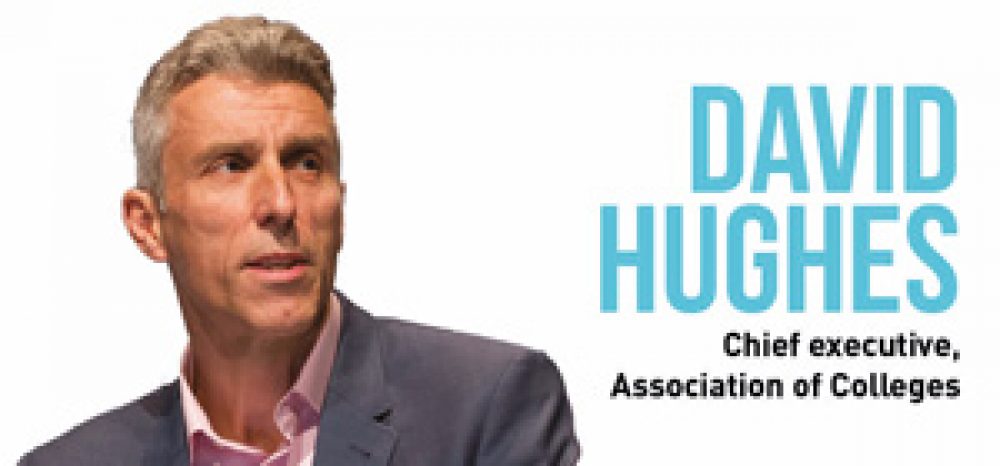This election has shown that voters are hopeful about the future – colleges can work with that, says David Hughes
After Leicester City, Brexit and Trump I had thought that the surprises were over – that was until the exit poll last night. Once again, politics seems to have changed in front of our eyes.
The only certainty now is that it is wise not to make predictions. The only other thing I am certain about is that I am glad I decided to write this after the results came in, otherwise there might have been some frantic rewriting required.
Throughout this short election campaign, our message at AoC has been simple: For the UK to succeed in a post-Brexit world, this country must be more self-sufficient in skills. As a country we need to develop a culture of lifelong learning and make this the norm in all communities, for all people.
Young people and adults deserve more opportunities and better funding to support their transition to work, retraining, progression to higher level jobs and skills. We have also made clear that colleges are more than ready to make this a reality, but to deliver, colleges need to have the right investment.
Our politics has shifted whilst most sensible people were asleep
The results of last night, I believe, give me optimism that this message resonates with the British public.
The gains made by the Labour Party appear to be built on a rejection of the austerity politics that have seen public services, including post-16 and adult skills, starved of investment.
The funding rate for 16- to 18-year-olds is still 20 per cent below the rates for 11- to 16-year-olds and we have lost over a million adults from learning every year.
The way our political system works, we know that the next government will have to recognise all this. If it is Conservative-led, it will be facing a more confident opposition buoyed by the support for its manifesto commitments. A second election in the autumn, if we have one, would see the main political parties all keen to work out what a more confident electorate wants. Expect a more explicit debate about the right balance between lower taxes and better public services. Yesterday that looked to be impossible, now it looks probable. Overnight, our politics has shifted while most sensible people were asleep.
Early indications also suggest there has been a very strong turnout from young people.
This is good news – engaged young people participating in our democracy, hopeful about the future, should please everyone.
I am proud of the work that colleges across the country have done to encourage voter registration as well as running hustings and debates to engage students in politics.
It is one good example of the role colleges play in helping to build a more inclusive society. Who knows, we may even see voting from age 16 in the future?
For all of us in the post-16 world though, we need to keep all of this in perspective. The government faces tough economic times; Brexit negotiations will be complex, diverting and potentially damaging; public spending will still be very tight if tax returns to the Treasury fall; and there are a whole raft of policy changes halfway through implementation which need urgent attention.
The uncertainty and instability of this result, as I write, might cause problems for all of us as decisions get delayed or deferred. The careful and private work we do with civil servants never really stops, so we will be focusing a lot of our efforts on supporting them to keep decisions on track, to prioritise where ministerial time is spent and to support colleges to continue to deliver to young people and adults.
But I don’t want to be gloomy – this election has shown that many voters want hope, positive ideas and proposals. We can work with that. Colleges are all about making hope a reality for students and communities.
By David Hughes, Chief executive of the Assocation of Colleges as part of our 2017 election coverage








An excellent article clearly distilling the public issues of the moment with their relevance to important FE issues. A master class by David showing exactly how politics should be treated in a specialist journal such as FE Week.